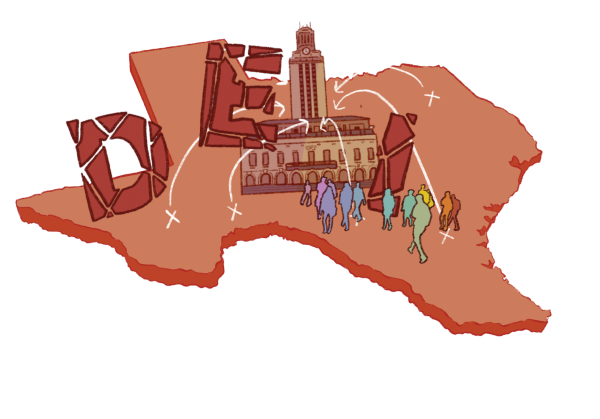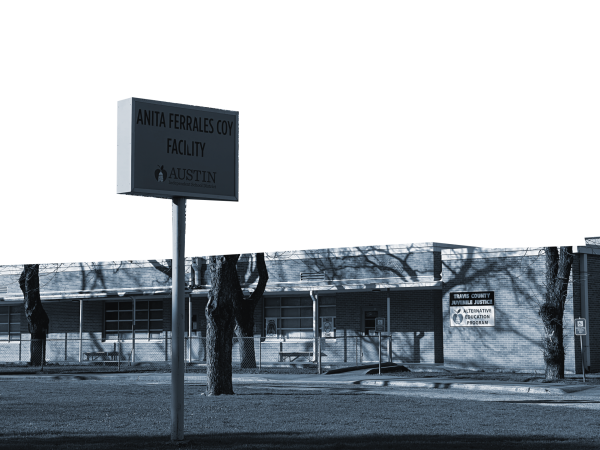Guns and Gasoline: What’s in Your Trunk?
January 9, 2020
In the fall of this year, Texas House Bill 1143 passed in the Texas legislature, restricting Texas schools’ power to limit how guns can be transported and stored in school parking lots. The changes in legislation have implications for all Texas school campuses, including LASA.
Public speaker Sasha Ashton is one of the organizers of the April 2018 Austin school shooting walkout. Ashton does not agree with the policies that are being put in place to roll back gun restrictions.
“Owning and carrying a firearm isn’t something that’s for everybody, and the processes by which people make split-second decisions in terms of using their firearms are not often the right processes,” Ashton said.
Some Texas state legislators, including Senator Kirk Watson, have opposed the law. Watson is a Democratic senator who represents Senate District 14, which encompasses a majority of the Austin area. He voted against bill HB1143 and opposes guns on school campuses.
“I voted against the bill because educators, gun reform advocates, moms, mental health advocates, children’s advocates and others opposed it and warned that it would make our schools less safe,” Watson said.
Ashton said school safety might not have been the primary consideration of legislators who passed this law. According to her, other influences, such as money, have the potential to take priority over students’ safety.
“The biggest reason that the Texas State Legislature tries to patch issues of gun violence with more guns is because it’s profitable,” Ashton said. “So many of our State Legislatures get so much money from organizations like the National Rifle Association and the gun lobby.”
Ashton said she disagrees with how she sees the Second Amendment being used to justify less restrictive gun laws. According to her, the Second Amendment’s current interpretation by some is not in-line with its writers’ original intentions.
“I think that the Second Amendment is grossly misconstrued,” Ashton said. “It makes little sense for everyone to have a gun just for the hell of it, but it is an important testament to our ability to organize against an unjust government.”
Senator Watson said that it is important to respect and acknowledge the rights the Second Amendment grants, but not at the cost of students’ safety or lives. He said that a compromise between gun control supporters and gun rights activists is achievable.
“It is completely unacceptable how many Texans die from gun violence every year,” Watson said. “We can and should pass reasonable gun regulations that comply with the Second Amendment and prevent children and dangerous persons from obtaining and using weapons.”
Ray Ephriam, head of security at LASA, said he feels as if he is responsible for the safety of the students on campus. Changes to gun legislation, like HB1143, directly impact the precautions that he needs to take when doing his job. He said that while some people let security threats fall to the back of their minds, security is always one of his worries.
“We believe in being proactive rather than reactive, and the thing about security is a lot of times you don’t think about it until something happens to you,” Ephriam said. “It’s sad that people hold their breath and when a shooting happens they go, ‘Phew, it’s done, we don’t have to worry about that anymore’. But you always have to worry about it. We try not to stereotype kids or adults, but if something raises my suspicion or if I see something that’s out of order, I’ll address it.”
Ephriam said LASA strives to be as secure as possible by implementing security measures. For Ephriam, student safety is the primary concern.
“We try to make sure everybody has ID’s and the doors are locked,” Ephriam said. “We’ve had several instances where kids are sitting in classrooms who aren’t even students here … and sometimes at lunchtime there are several people on campus that have no business being on campus. This is supposed to be a closed campus.”
Ephriam also said that a campus with guns doesn’t promote an environment that he wants to be a part of. Carrying a gun is a large responsibility and it is not for everyone, he said.
“I’m really glad that there are only certain people who can carry guns,” Ephriam said. “Some people are just not fit, and the first thing they do is reach for a gun. They see it as an intimidation factor or a control factor. I’ve seen situations where people were hired because of how they look and not because of their background and they weren’t the people for the job. So I think it’s good that we don’t have to carry guns. I wouldn’t feel right carrying a gun.”
Ashton said that guns have the potential to create an environment that is both physically and emotionally harmful to the students. She also said that guns on campus do not help if violent circumstances occur.
“There is so much historical evidence that shows that having firearms on campuses not only has a detrimental effect on the emotional well being of students, but it can also be counterproductive when you look at violent acts on campus,” Ashton said. “With the Virginia Tech shooting, there’s not really anything that points to guns being extraordinarily helpful. I know as a black individual I wouldn’t really feel safe on a college campus knowing that students around me could be armed.”
HB1143 does not mean students will be allowed to carry guns on campus but rather allows guns in vehicles in parking lots on campus. Ephriam said that measures have been taken to ensure a secure parking lot at LASA, but Ephriam acknowledges that the system isn’t perfect.
“Every car is supposed to be licensed, inspected, and have a parking permit,” Ephriam said. “Of course, that’s not always true, but if there’s an accident on campus, AISD can become liable.”
According to Ashton, schools cannot do much to affect changes in gun legislation. However, she said that in spite of efforts like HB1143, it should always be a top priority to make sure that students feel safe at school.
“I think the obligation is to find comprehensive solutions to help keep their students not just physically safe, but emotionally,” Ashton said. “There needs to be an effort made to make sure people always feel safe.”









